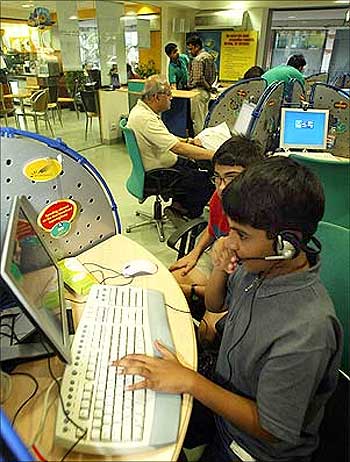
Moreover, the growth of Internet will reduce the both national and international call rates, states a study by the Internet Service Providers Association of India (ISPAI).
The report titled, 'Augmenting Indian economy through liberalisation of the Internet' highlights the need to remove bottlenecks in the growth of Internet. It sees Internet as a powerful tool to improve the country's growth.
However, there are several pre-requisites for strong internet backbone. Fair competition, government supporting policies and de-monopolistic framework are vital for this. The government needs to revise policies with respect to ISPs. This can liberalise the internet.
The government should restrict licenses; go for more expansion in rural areas. Internet should be made more affordable even in rural areas.
So what are the benefits of liberalising the Internet and how can the government liberalise the Internet to boost the economy? Read on...

The liberalisation of the Internet creates a potential of educating more than 200 million people. The wide use of the Internet will also have a positive impact in the environment with people saving paper, about 43 crore (430 million) trees can be saved. The following sectors will see a big leap.
Agriculture sector is expected to grow by 2-5 per cent, healthcare by 4-8 per cent and the IT sector by 7-10 per cent.
The BPO will see a high growth of 12-18 per cent, followed by education at 8-12 per cent.
The small and medium enterprises (SMEs) will grow by 4-7 per cent, media and publishing will see a growth of 8-11 per cent. These sectors will in turn substantially push India's GDP growth by 2.5 per cent.
Here are 11 important ways to liberalise the Internet:

Cyber cafes must be exempted from service tax as they spread the usage of a key infrastructure. Service tax exemption for broadband as the government pushes for the proliferation of broadband.
2. Promote Internet
Delimit USO funding to voice telephone only to decrease dependence on subsidiaries
Allow ISPs to offer cheap voice telephony to rural population, provide all operators irrespective of license offering service in rural areas with USO fund support.
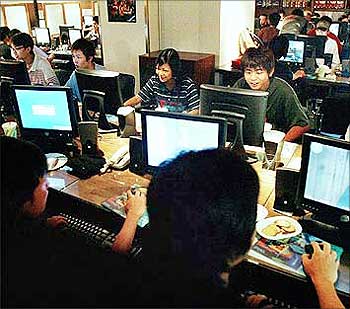
International bandwidth prices and domestic leased lines will contribute about 60-70 per cent of the cost in the provision of broadband.
Though both international and domestic bandwidth prices have reduced substantially there is still scope for more when compared to countries with higher internet penetration
4. Protect from predators
The Telecom Regulatory Authority of India (Trai) should keep an eye on predatory practices prevalent in the sector and take pro active prevention steps.
Internet Service Providers (ISPs) should be treated as bulk customers and be given wholesale prices. Trai should look into this matter
ISPs should not be denied any provision of resources, just because these have been provisioned from another service provider.
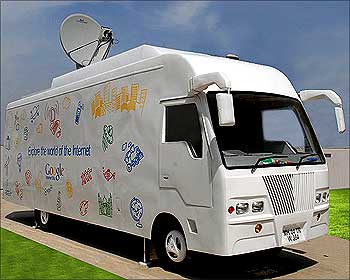
Unlicensed operators like Skype, Google, MSN, Net2phone are offering IT to SMEs, corporates, BPOs without having a license and without registering in India.
Unlicensed operators lead to loss in revenues. Foreign service providers encourage grey market which means a loss of 12.36 per cent service tax and disrupts the revenue for Indian registered ISPs.
There is a need for lawful interception, foreign providers' data such as CDRs cannot be obtained for random checks.
Bring them under Indian regulatory framework to prevent security threats. Various networks need to be interconnected for the sake of national security and centrally monitored.
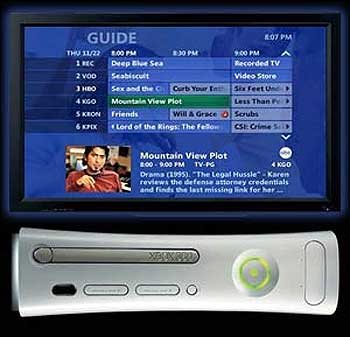
A negative effect of restricted internet telephony affects ISPs, consumers and govt. As a result, the rural population is deprived of voice, video, e-education, agricultural support and e-medicine.
This also gives rise to a grey market due to differences in tariffs by UASL, ISPs and foreign service providers, resulting in loss of revenue to both the ISPs and government
7. IPTV
The government should remove the license restriction of Rs 100 crore (Rs 1 billion) net worth for ISPs, who wish to start IPTV services.
This is unfair as a cable operator can offer IPTV without any extra fees or obligations. Discriminating policies may lead to a monopolistic situation where a few service providers dominate the market.
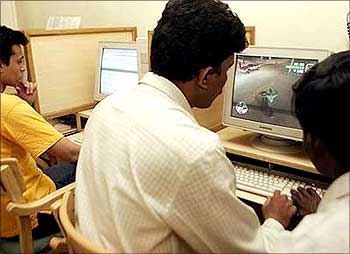
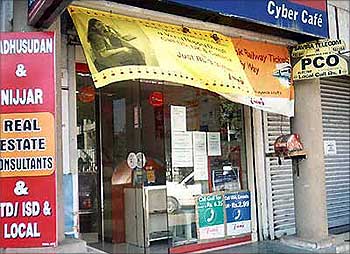
Ensure fair competition between telecom operators and ISPs by separation of telecom operators ISP and telecom business
BSNL and other access providers sell bandwidth and leased lines to ISPs at non-discrimnatory prices.
Ensure hoarding or inefficient use of spectrum by current telecom access providers doesn't thwart new entry in wireless.
Full Internet telephony should be allowed ISPs and not just telecom access provider who have refused o offer the service.
Local loop owners should charge ISPs wholesale and not retail prices as is the practice in all major regulatory regimes.
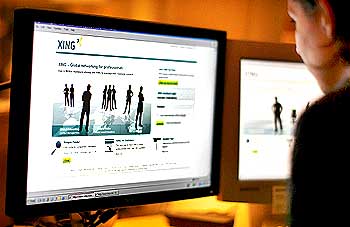
Prevent abuse of spectrum resources by ensuring companies cannot use the merger route to claim additional spectrum for which there are other claimants.
Remove category C license as it will deprive the consumer of niche areas not serviced by bigger players and kill entrepreneurship opportunities in non-commercially viable areas.
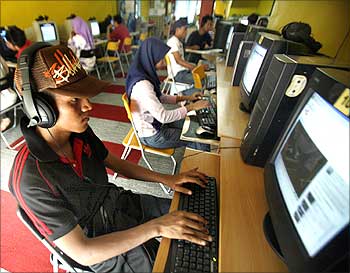
Change spectrum policy that favours voice against data.
ISPs, being the major stakeholders in Wi-Max and wireless broadband are being neglected.
At least 3 frequency bands must be reserved for ISPs to help increase rural penetration.
De-link Broadband Wireless Access (BWA) spectrum from 3G, it should be dealt separately keeping ISPs in mind.
Auctioning of BWA spectrum should be stopped as it translated into increased prices of broadband for a price sensitive Indian market.